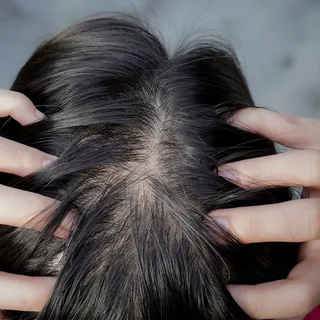Hair loss is something many people face, but few talk about openly. Whether it’s due to stress, poor nutrition, or genetics, losing hair can feel frustrating and even scary. The good news is that there are natural and effective ways to manage it—and even reverse the process in many cases.
The way we view ourselves is significantly influenced by our hair. That’s why thinning hair can lower confidence and affect emotional well-being. But before jumping into costly treatments or harsh chemicals, it’s worth understanding what causes hair loss and how to tackle it in a more gentle, healthy way.
From changes in diet to new wellness techniques like Celluma light therapy, several options can help support hair growth and improve scalp health. The key is consistency and a bit of patience.
Why Hair Loss Happens
Hair loss isn’t caused by just one thing. Many factors can lead to thinning or shedding, and sometimes it’s a mix of several at once.
Genetics: If your family members have experienced hair loss, chances are higher that you might too.
- Hormonal changes: Pregnancy, menopause, or thyroid problems can affect hair growth.
- Stress: High stress levels can push hair into a “resting” phase, causing more strands to fall out.
- Nutritional deficiencies: Low levels of iron, protein, or certain vitamins can weaken hair.
- Medical conditions: Conditions like alopecia areata, scalp infections, or even certain medications can lead to hair loss.
- Over-styling: Excessive heat, tight hairstyles, and harsh chemical treatments can damage the hair shaft and follicles.
Understanding what’s behind your hair loss is the first step in choosing the right solution.
Natural Ways to Fight Hair Loss
Many people want to avoid drugs and instead look for safer, natural ways to restore their hair. Here are some proven options:
- Balanced Diet
What you eat plays a big role in hair health. A diet rich in protein, iron, omega-3 fatty acids, and vitamins (especially Biotin, Vitamin D, and Zinc) can nourish your hair from the inside out. Include eggs, leafy greens, nuts, seeds, and fatty fish in your meals.
- Scalp Massage
Massaging your scalp helps improve blood flow to the hair follicles. Better circulation brings more nutrients to the roots, which can promote stronger hair growth. Just five minutes a day can make a difference.
- Essential Oils
Natural oils like rosemary, peppermint, or lavender oil are known for their scalp-boosting properties. Mix a few drops with a carrier oil like coconut or jojoba oil and apply gently to the scalp. Do this two to three times a week.
- Avoid Harsh Chemicals
Stay away from shampoos or styling products loaded with sulfates, alcohol, or parabens. These can dry out your scalp and damage the hair. Choose mild, natural products whenever possible.
- Celluma Light Therapy
Another natural approach that is gaining popularity is Celluma light therapy. This treatment uses low-level red or blue light to stimulate the scalp and improve cellular activity. It helps increase blood circulation, reduce inflammation, and promote healthier hair growth. People who use this therapy often notice fuller, stronger hair over time—without pain or side effects.
Lifestyle Changes That Support Hair Growth
In addition to topical treatments and nutrition, some lifestyle changes can greatly impact the health of your hair:
- Manage stress: Practice mindfulness, meditation, or yoga to keep stress levels in check.
- Get enough sleep: Your body needs time to repair and grow—including your hair. Aim for 7–9 hours per night.
- Stay active: Regular exercise boosts circulation, which helps deliver nutrients to your scalp.
- Avoid smoking and alcohol: These habits can damage hair follicles and reduce overall hair health.
When to Seek Medical Help
Natural treatments are effective for many people, but sometimes hair loss may need professional care. If you notice:
- Sudden or patchy hair loss
- Itching, redness, or pain on the scalp
- No improvement after several months of natural remedies
…it’s best to see a dermatologist. They can check for underlying medical issues or recommend more specific treatments.
Tracking Your Progress
Hair regrowth takes time. It’s important to be patient and track your journey. Take photos every few weeks, or keep a journal to note any changes. This helps you understand what’s working and keeps you motivated.
Combining natural methods with consistency can lead to visible results. Even small steps like eating better or using a gentle oil can support your long-term hair health.
Conclusion
Hair loss may feel like the end of the road, but it doesn’t have to be. With the right care, nourishment, and lifestyle habits, you can go from thinning to thriving. Solutions like scalp massage, a healthy diet, and gentle oils are great places to start. And for those looking for a tech-based natural solution, Celluma light therapy offers an exciting way to boost hair health without chemicals or discomfort.
Remember, the goal is not just to grow more hair—but to support overall wellness and confidence. By treating your body kindly and giving your scalp the care it needs, you can enjoy stronger, fuller hair—naturally.
















